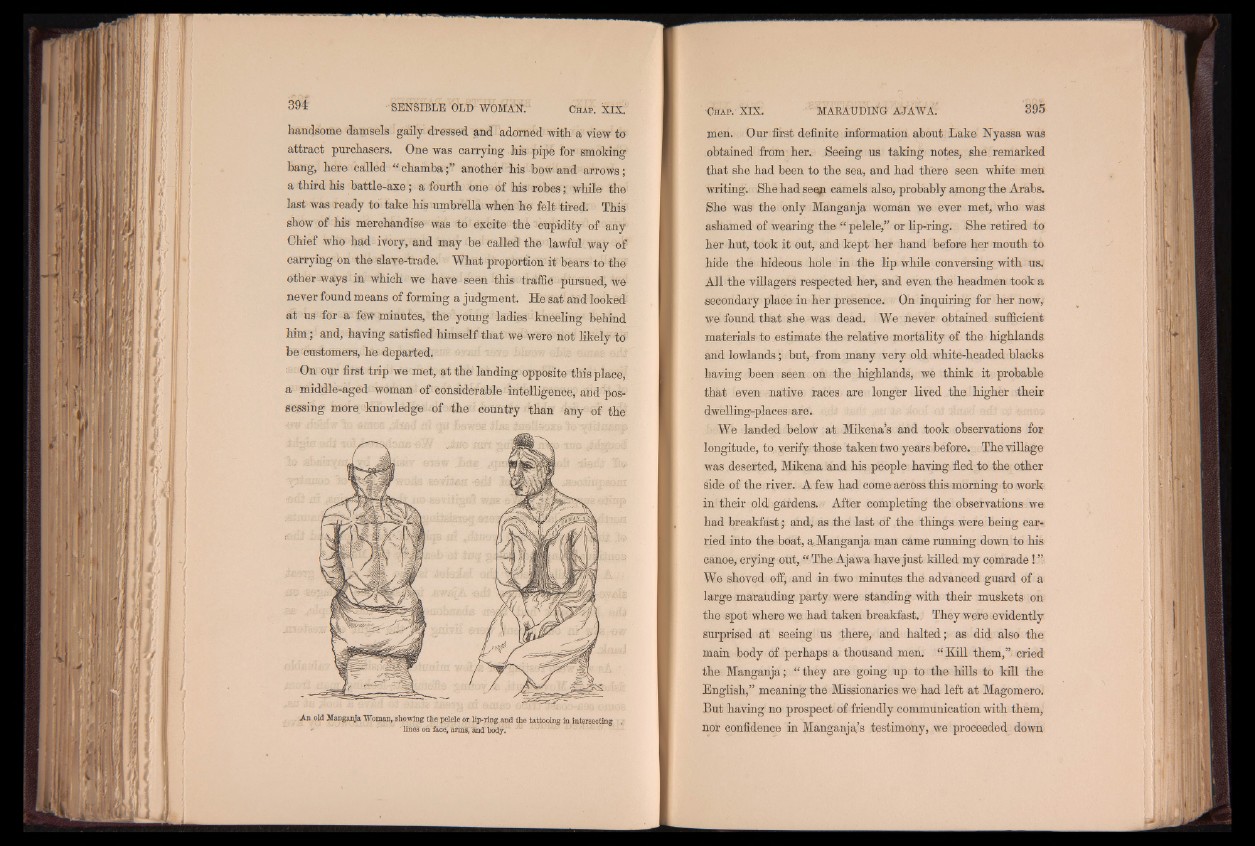
handsome damsels gaily dressed and adorned with a view to
attract purchasers. One was carrying his pipe for smoking
bang, here called “ chambaanother his bow and arrows;
a third his battle-axe; a fourth one of his robes; while the
last was ready to take his umbrella when he felt tired. This
show of his merchandise was to excite the cupidity of any
Chief who had ivory, and may be called the lawful way of
carrying on the slave-trade. What proportion it bears to the
other ways in which we have seen this traffic pursued, we
never found means of forming a judgment. He sat and looked
at us for a few minutes, the young ladies'kneeling behind
him; and, having satisfied himself that we were not likely to
be customers, he departed.
: On our first trip we met, at the landing opposite this place,
a middle-aged woman of considerable intelligence, and possessing
more knowledge of the country than any of the
An old Manganja Woman, showing the pelele or lip-ring and the tattooing in intersecting 1
linGs on fece, arms, and body.
men. Our first definite information about Lake Nyassa was
obtained from her,. Seeing us taking notes, she . remarked
that she had been to the sea, and had there seen white men
writing. She had seep camels also, probably among the Arabs.
She was the only Manganja woman we ever met, who was
ashamed of wearing the “ pelele,” or lip-ring. She retired to
her hut, took it out, and kept her hand before her mouth to
hide the hideous hole in the lip while conversing with us.
All the villagers respected her, and even the headmen took a
■secondary place in her presence. On inquiring for her now,
we found that she was dead. We never obtained sufficient
materials to estimate the relative mortality of the highlands
and lowlands; but, from many very old white-headed blacks
having been seen on the highlands, we think it probable
that even native races are longer lived the higher their
dwelling-places are.
We landed below at Mikena’s and took observations for
longitude, to, verify those taken two years before. The village
was deserted, Mikena and his people having fled to the other
side of the river. A few had come across this morning to work
in their old gardens. After completing the observations we
had breakfast; and, as the last of the things were being carried
into the boat, a Manganja man came running down to his
canoe, crying out, “ The Ajawa have just killed my comrade ! ”
We shoved off, and in two minutes the advanced guard of a
large marauding party were standing with their muskets on
the spot where we had taken breakfast.. They were evidently
surprised at seeing us there, and halted; as did also the
main body of perhaps a thousand men. “ Kill them,” cried
the Manganja; “ they are going up to the hills to kill the
English,” meaning the Missionaries we had left at Magomero.
But having no prospect of friendly communication with them,
nor confidence in Manganja’s testimony, we proceeded down